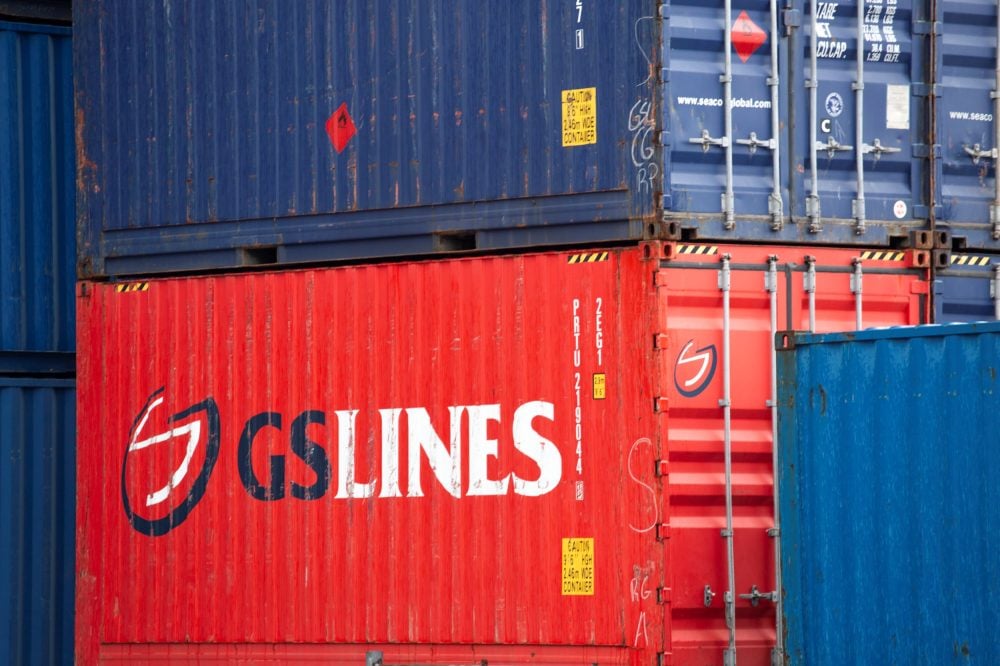U.S. port strike threatens vital trade arteries

Some 45,000 union workers could walk off the job at seaports on the U.S. East and Gulf Coasts on Oct 1, cutting off vital trade arteries just weeks ahead of the nation’s presidential election.
A strike would hit 36 ports that handle about one-half of U.S. ocean imports. That could affect availability of a range of goods from bananas to clothing to cars shipped via container, while creating weeks-long backlogs at ports. It could also stoke shipping cost increases that may be passed on to American voters already frustrated with housing and food inflation, according to logistics experts.
Read Also


BASF targets partial listing of agriculture division
BASF is planning a partial listing of its agricultural business because the stock market is underestimating the unit’s earnings prospects within the group, the German chemicals giant’s new CEO told staff on Wednesday.
The International Longshoremen’s Association (ILA) union representing workers at 36 ports from Maine to Texas and the United States Maritime Alliance employer group appear to have hit an impasse over pay. The current six-year contract expires at midnight on Sept. 30.
A strike at all East Coast and Gulf of Mexico ports would be the first for the ILA since 1977.
The White House said it is not trying to help broker a deal, as it did last year during West Coast talks, and a Biden administration official has said the President would not use his federal powers to block a strike.
Ports in the negotiating group handled $37.8 billion (C$50.9 billion) worth of vehicle imports during the 12 months ended June 30, 2024, according to S&P Global Market Intelligence. The Port of Baltimore, Maryland, leads the nation in car shipments.
Auto parts are also a key import on the East Coast and Gulf of Mexico, with shipments from Europe more difficult to reroute than those from China, logistics experts said.
The ports also lead the U.S. in shipments of machinery, fabricated steel and precision instruments.
Three-quarters of the nation’s banana imports from countries like Guatemala and Ecuador land at ports on the East and Gulf Coasts, said Jason Miller, interim chair of Michigan State University’s department of supply chain management.
A strike also would affect container exports of soybeans, soybean meal and other products and would have a significant impact on chilled or frozen meat and eggs, said Mike Steenhoek, executive director of the Soy Transportation Coalition.
The $18-billion-a-year (C$24.2 billion) U.S. beef and pork export market and the $5.8 billion (C$7.8 billion) poultry and egg export sector relies on refrigerated containers that cannot sit idle for long.
About 45 per cent of all waterborne U.S. pork exports and 30 per cent of beef exports were shipped via East Coast and Gulf Coast ports in the first seven months of this year, said U.S. Meat Export Federation spokesperson Joe Schuele.
More than a quarter of all U.S. egg and egg product exports and around 70 per cent of all poultry meat exports are shipped from ports along the East and Gulf Coasts, according to Customs data and the USA Poultry & Egg Export Council.
Retailers account for roughly half of all container volumes. Many U.S. retailers already have rushed in shipments of year-end holiday goods.
Though the Gulf Coast ports of Houston and New Orleans are major oil and gas shipment hubs, those commodities would remain largely unaffected by a strike involving more labor-intensive container cargo. The same applies to coal exports from Norfolk, Virginia, experts said
—Reporting for Reuters by Lisa Baertlein in Los Angeles and Karl Plume in Chicago.
Source: Farmtario.com

